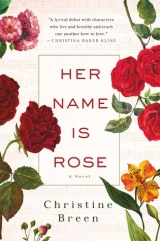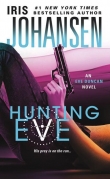
Текст книги "Her Name Is Rose: A Novel"
Автор книги: Christine Breen
Жанр:
Роман
сообщить о нарушении
Текущая страница: 3 (всего у книги 17 страниц)
Three
It had been Luke who’d decided what they should name their baby. When Iris suggested Poppy he’d turned his eyes upward.
“No, Iris, be serious! Poppy? Come on. Her name should be Rose.”
After four years of waiting, Iris would be a mother and Luke a father and two would become three. For seventeen years the Bowens were a trio—two flowers and a “fLuke,” Luke had said.
“Fluke?” Rose asked when she was old enough to wonder what it meant.
“That’s right,” Luke would say and wink at Iris. “I’m the odd one out. Did you ever hear of a flower named Luke?” He looked at Rose with his eyebrows raised to their highest and she shook her head. “No, then. As I said, we’re two flowers and a fLuke.” And that’s how it was—until the beginning of that wet summer two years ago when three became two again.
A pain in Luke’s back had become pancreatic cancer.
They’d sat in the peach office of the oncologist Dr. Conway. The office was on the second floor of the Limerick Regional Hospital and Iris remembers looking out at the traffic, the buses and cars and taxis, and thinking, This is just a bad dream. A bus stopped and two older women helped each other off. One was wearing a red hat and a black-and-white-checked jacket. Everything was so normal. Middle of a Wednesday afternoon in early March. Blue sky. Spring. A few clouds. But at a tidy desk with a brown folder a voice was saying, “I’m afraid it’s not good news.”
When they came out to the car park that day Iris couldn’t find the parking ticket and she pulled everything out of her bag, pulled it all out and let it fall on the ground. Check book, old shopping receipts, wallet, a packet of tissues, lipstick, her hairbrush, sunglasses. Loose coins. Everything. A man came up quickly behind them and said, “Here, take mine,” as though he knew all the people coming and going from that particular car park might have just heard, I’m afraid it’s not good news. Maybe by giving her his ticket his news would be better.
Next came the treatments and the short spells of hope, the urgings of good cheer, visits from neighbors and friends all wanting her to hope for the best. There’s always room for hope, they’d said. Iris had a mania for feeding Luke green leafy vegetables and juicing arugula with lemon and olive oil—good for the liver and pancreas, Tess said. But that passed when he couldn’t eat anymore, when he lost his appetite and became the thin figure with no strength left. Then she tried to feed him applesauce. They nursed him at home and Sheila, a hospice volunteer, came every afternoon. Every day Iris brought something fresh in from the garden. Petals of forget-me-nots, like blue confetti, lay sprinkled on top of his bedside table. The CD player was playing Bach concertos, and then sometimes Luke would ask Rose to put Israel Kamakawiwo’ole’s “Somewhere Over the Rainbow” on repeat.
Luke’s health declined quickly. (He hadn’t been feeling well since early December, but hadn’t let on.) Then, one afternoon in the week before he died, he reached for her hand across the cream candlewick bedspread. Iris had looked at him with fear in her eyes that this was the end. But she was surprised by his sudden strength, and briefly, like a sun ray breaking through a storm cloud, a glimmer of hope eased her face.
“Luke?”
He angled himself up in the bed. He took a moment to moisten his throat, as if the words were hard and dry, and yet he had to say them. The green of his eyes had deepened. “Luke? What is it?”
“Iris … after me. If anything happens to you—”
“Stop. Nothing is going to happen to me. Lie back.”
“Iris. Listen … I—”
“No.”
The pressure of his fingers on her hand tightened.
“Listen to me. Please. I don’t want Rose to be alone.”
Iris turned to look away out the window, tilted back the tears, and held her mouth tightly.
“You … need to make sure that doesn’t happen. Iris, you … have to explore all possibilities. Without you … there will be no one.”
“Nothing is going to happen to me,” she said. “Lie back.”
“Say you understand.”
She hesitated. “Do you know what you’re asking me?”
“I do.”
But did he? Did he really? It pained her to think about what he was asking. This man she’d loved for nearly three decades was dying but he was talking about life. Not his life. He was talking about life after him.
“I’m going now,” she said. He loosened his grip. “Rose has her French practice exam tomorrow.” Then, to make him laugh (because they all knew she was hopeless at languages), she added, “I promised I’d quiz her on grammar.” But he didn’t laugh.
“I just wanted to make you smile.”
There were tears in his eyes; there were always tears in his eyes now, just on the edge of spilling.
“Iris. Please … she’ll have no one. Do it for me.”
Iris held her breath.
Then he spoke the words she didn’t want to hear. “Try to find her … find Hilary.”
He didn’t know what he was saying. Find Hilary? It was an impossibility. They’d had one meeting with her. The three of them and a social worker. Years ago. It was crazy. Iris rose from the bed and went to the window. Pulling the curtain aside, she saw the poppies needed staking.
Iris tidied the bed tray, smoothed the blanket, poured water into a plastic cup, and straightened the pile of magazines—The Economist, Wine Spectator—and the novel Luke was still hoping to read, The Third Policeman. She couldn’t think straight but she pretended calmness. He knew. He knew her inside out. When she came to kiss his forehead, he caught her arm. His voice was hoarse.
“Iris, we have to keep showing up for each other, for Rose.” He closed his eyes and fell back.
She kissed him on his forehead and let her cheek linger on the side of his face. The softness of his skin at that moment was extraordinary. As though he was already becoming transparent, already leaving the world.
She whispered, “I’m sorry. I’m so sorry this is happening.” She clenched her teeth. She didn’t want to cry. They’d been all through this. The unfairness of it. The sadness. The end.
“Say you’ll promise.” He held his grip on her arm.
“I’ll make a phone call this week,” she’d said. Then she held his face between her hands. “I promise.”
* * *
Luke died a few days later on a sunny day at the end of May, two weeks before Rose’s Leaving Cert exams, a month before her seventeenth birthday.
Iris had rallied as best she could. She’d coached their daughter through the exams because there was no other way. She had to take them, but she only had to pass. And somehow they’d got on. Somehow they did. Iris and Rose, with a lot of help from Tess. Then, four months later, Rose entered London’s Royal Academy of Music.
The surviving pieces, after the center had been blown out their lives, fell into place, as if ordained from on high, as if in compensation. The life insurance benefits were held in trust for Rose, and after paying her rent and school fees she had a monthly stipend for living expenses.
* * *
Iris stayed in Ashwood. And in the unyokedness of being a widow she was adrift in the world, like a dandelion when its yellow florets have died and turned to seed, parachuting into the air, like a ruptured cloud burst. She was all over the place. No center to hold on to.
She’d never imagined a life without Luke. She hadn’t prepared. And yet now here she was, a damp morning in the beginning of June standing in her kitchen with the radio playing requests, wearing her nightdress with its watering-cans-and-Wellingtons pattern Luke had given her one Christmas, and her long, wavy red hair that Luke never wanted her to cut, having to imagine the possibility of a cancer growing in her, too. What were the odds? Nine out of ten callbacks. False-positive. It was simply unimaginable, and yet.
Instinctively she moved her hand to her left breast, and then took it away.
“You’re fine,” she said to no one listening. “You’re perfectly fine. Don’t go getting all dramatic. You’re fine.”
She stood at the counter, looking at the poppies she’d singed and propped in the vase. When she’d come into the kitchen the next morning, the day after Dr. O’Reilly telephoned, she’d expected to see their turgid stems bare with petals fallen on the counter. But the flowers were perpendicular, just as she’d left them. Alive, erect, and vibrant still. The BBC gardener was right. The purple stamens nodded as she turned the vase around and a fine black dust whispered down the inside of the petals.
She opened her laptop and brought up the blog page on The Banner County News Web site. The country had gone from boom to bust and there were neither new houses nor new gardens, but there were still gardeners. Gardening doesn’t stop when the economy tanks. She took a moment and then tapped the keys in a flurry.
Bird jam. Listen to the dawn chorus. To calls, whistles, trills, cackles, coos, chattering, and twittering.
Omens are everywhere. Birds are everywhere. Love is somewhere.
Anxious to lift a corner on the veil of the future, we are attracted to omens and birds. In the days of the Romans, a bird appearing at a person’s right indicated fortune. A bird to the left … well, you guessed it … avoid it.
The blog seemed a lesser thing to Iris. Did anyone care? And who the hell out there was ever going to read it? Yet the blinking cursor was alive on the white template. It could link anywhere. Connect to perfect strangers, even. By such a thin thread she could connect with the world beyond Clare, she thought. She’d set up a Wordpress site and she owned the domain IrisBowen@wordpress.com. She could hyperlink between the two blogs now and felt a little pleased with herself. When she missed Rose and Luke the most, she could blog. The blog could be her dialogue … with somebody. Anybody. She looked out down the slope of the garden toward the trees. She watched the sudden flight of a blue tit heading for the cherry blossoms. Then she typed:
A bird flying to you is a benediction. Grab it before it flies away.
After uploading the poppy photos (the sketch she’d attempted was laying, half-finished, beside the telephone), and writing step-by-step instructions and posting, Iris went outside. Suddenly she wanted to hear the cuckoo. She walked eastward along the front of the house, along the border that was stippled with wild columbine, and turned right to face the valley. Nothing.
“Where are you?” she asked toward the treetops.
Listening for the first call of the cuckoo was a thing she and Luke used to do. In the brightening of spring they’d keep track, year on year, who would hear him first. (Luke, fourteen. Iris, eleven.) The cuckoo comes in April. She walked backward in case her left ear should catch him. Then she stopped and faced east. No sound. He sings his song in May. Sing, cuckoo.
She called: Goo-ko, goo-ko, willed him to fly up from the valley and sing across the top of the spruce forest.
Goo-ko, goo-ko …
Nothing.
All she could hear was Tommy Ryan’s van from half a kilometer away as it stopped and started to deliver post into neighbors’ boxes along the road. Still wearing her nightdress and one of Luke’s shirts, her hair undone, Iris hid behind the hedge. Tommy was a kind man but she was in no humor to speak with him. He played cards most nights in Nolan’s pub since his own wife had died suddenly of a heart attack at fifty-two. Now when he saw Iris he seemed to look at her like she was wearing some dark mantilla of sadness that he felt somehow obliged to take away. She wanted to say, “I’m fine. Thanks, Tommy. Really. Don’t worry. And stop looking at me that way.”
As he stepped from his van, leaving the door open, she could hear the noon Angelus ringing on the radio. He opened the box and dropped in her post. Out of nowhere, Cicero, her black cat, appeared at her bare feet and started mewing. She mimed to him to shush, but Cicero paid no attention to mimes and mewed louder and Tommy called “Sibby, Sibby” outside the hedge. (Why all cats in the west of Ireland were called Sibby, she never understood.) He might have come to the gate to see then, but Iris plucked the cat up into her arms and held him tight.
“Sibby, Sibby?”
When Tommy’s van passed away back down the road, Iris slipped through the gap in the hedge. Between the electricity bill and a copy of Gardens Illustrated was a letter from the Breast Clinic. She opened it and read:
A client’s path through the symptomatic breast clinic is tailored to the individual and may not require anything more than a clinical review (especially in younger women). The medical history will be discussed and the client will be given the opportunity to ask questions regarding their symptoms and future management. A small number of clients require a biopsy. This is a minor procedure where tissue is removed from the breast using a needle under local anaesthetic. Most women experience little or no discomfort with this procedure. The center is equipped to perform a biopsy during the client’s initial assessment, although occasionally biopsies are performed at a later date to facilitate accurate guidance with the mammogram. The tissue is then examined under the microscope. Most clients who have a biopsy do not have breast cancer.
It is very important that you confirm your appointment: Friday, 12 June, 10:30. Dr. Denise Browne.
She folded the letter into its envelope and put it in her back pocket and walked up the path, unable to deny it was real. This distortion thing. Swallows reveled in and out of the barn, ignoring her, and Cicero made little cackling noises. The tip of his tail shivered. The appointment was at the end of the week.
“What? Don’t look at me like that,” she said. But he did. Expectant. She turned to face again the trees. The female cuckoo would be encamped high up, somewhere out there, biding her time, awaiting her moment. This was the time of year she’d drop her egg into the nest with the meadow pipit and, in the way of nature, the meadow pip mother would raise the baby cuckoo as her own. But where was the cuckoo’s mate? Iris wanted to hear him. It was absurd, but she did. No sound came from the sky except a wind noising in the spruce. She made it across to the stone steps at the top of the garden and sat down, clutched her knees. She rocked back and forth. Tears streamed down her face.
* * *
Iris had decided not to disturb Tess’s weekend. But on Monday when she rang, Tess hadn’t answered, so Iris had left a voice mail: “Guess what? I have a distortion. Ring me.”
Now Iris sat in a iron garden chair with a bottle of red wine and a tumbler at the round table under the porch. She sat out in the falling night air with the garden perched on the edge of explosion of more poppies, lupines, and geraniums. A swelling greenness turned the new growth of the boxwood hedge neon, even in the darkness. The swagged layers of Mt. Fuji, the Japanese cherry, had reminded Luke, she remembered, of the bustle gowns in Femmes au Jardin by Monet, with its branches billowing in the wind. Cicero composed himself in a clef shape across the table and played with the pieces of cheese Iris fed him.
“One for you and one for me.”
Evening began to fall. She finished the wine and went inside and lay down on the couch.
* * *
A few hours later Tess woke her.
“Good evening, pet,” she said, raising her eyebrows and looking at the blue Wellies still on Iris’s feet. “A little self-medicating?”
“Never hurt anyone,” Iris said somewhat sheepishly, sitting up and feeling at once a sharp ache at the base of her neck, under her left shoulder, and yes, there, dead center of her spine. “What are you doing here?”
“Got a missed call from you earlier. You sounded funny, so I thought I’d pop over.”
“Oh, right. Sorry. I must have fallen asleep. What time is it?”
“Ten.” Tess picked up the bottle on the floor. “Californian. Yum.” She smiled. “But mind yourself. Okay?”
“Yes, Dr. Tess, Medicine Woman.”
“Iris?”
“Okay. Yes. I hear you.” Iris kicked off her boots and rose crookedly from the couch. Her head was sore. The blue of the summer night sky was finally yielding to darkness.
“Tea, I think, before you tell me exactly what the doctor said.”
In the kitchen, Tess switched on the light and Iris put the kettle on. “Poppies are fab,” Tess said, looking at them and, without lifting her eyes: “So the doctor said they found—”
“A distortion.” Iris looked at her for a long moment. “What is … an ‘architectural distortion’?”
Tess came around the counter toward her. “I know it sounds very clinical and not very encouraging but—”
“No, it really doesn’t.”
“—I looked it up.” Tess smiled, hesitantly at first, then laid her arm around Iris’s shoulders in a robust kind of way. “It’s just common medicalese, pet. An abnormal area of density. It shows up as shadows or white spots on the mammogram.” She’d brought her PC with her and now had it opened on the counter.
“Shadows or white spots?”
“Apparently. Fatty breast tissue can look similar to a lump.”
“Fatty!”
“Iris, seriously, that’s it. An architectural distortion—”
“Can we stop calling it that!” Iris opened the cupboard and took out aspirin.
“Did you drink the whole bottle?”
Iris didn’t replied. She had drunk more than she’d meant to. Her back was to Tess for a few moments. “Look, I got this.” She reached into the back pocket of her jeans and showed Tess the letter from the Breast Clinic. “It came today.”
Tess took the letter. “They don’t waste any time.” She read it. “That’s good, Iris.”
“Yeah?”
Tess nodded. “Really. The sooner, the better. Right? Doesn’t mean bad news. Just … let’s get on top of this.” She paused a moment before continuing, “So … Iris … the distortion … it says here … just requires a bit of further exploration by ultrasound. It’s not unusual”—Tess lowered her voice and narrowed her wide eyes—“in older women.”
Iris suddenly burst out laughing, startling her friend. “Oh, thank you! Now I’m fat and old. I wish Luke could hear this.”
She brought the teapot and cups to the table and Tess read more: “An architectural distortion is an abnormal arrangement of tissue strands of the breast, often a radial or random pattern.” Tess looked up. “But … without any associated mass as the apparent cause.” She continued reading as Iris poured the tea. “There is no visible mass.” Tess read silently for a few moments.
“And?”
Tess held up her hand. “Here. Listen. The number of women in which the architectural distortion would actually represent invasive breast cancer is very low, perhaps five to seven percent. Clearly, most architectural distortions found on mammography are due to benign causes. There!” Tess sat back. “See?”
For a few moments both women sipped their tea, feeling somewhat relieved that perhaps the “distortion” was a thing of nothing, just as the doctor had said. Iris then showed Tess the sketch she was working on.
“Not bad, pet. Not bad at all. You’re a constant surprise, Iris. Really. I’m in awe of you.”
“Yeah?”
“Really. No, it’s good.” Tess reached across the table and squeezed Iris’s hand. “You know, I’m really proud of you. What with the uncertainty of your job at the paper and now this. You’re handling it so well.”
Iris got up and faced her friend and, as if rising to the occasion that all would be just fine, she stretched the back of her neck straight up and stood firm. “Anyway, it’s not like I have cancer. Sure it’s not? I’m just going back for a second mammogram and ultrasound. To be sure. End of story … maybe a biopsy.”
“Absolutely.” Tess knit her brows.
“But I can tell you for nothing, I am a little nervous.” She relaxed her stretch and started to clear the table.
“Don’t be. Let me be nervous for you.”
Iris nodded, feeling the genuine warmth from her friend.
“And I promised Luke I’d look after you. And a promise is a promise is a promise,” Tess said.
Suddenly, Iris was looking at Tess as if she’d just seen a ghost walk past, as if it wasn’t Tess who was speaking.
“Iris? What is it?”
Iris turned away. “Nothing.” She went to the sink and put the teacups in and washed them. Until that moment Iris had kept the words “promise” and “Luke” well apart from each other. Ever since that horrible afternoon toward the end when Luke had asked her to promise, she’d closeted that word, locking it away in the farthest cupboard of her mind. There had been too much to do just to get on with living. Anytime she’d revisited the moment when he’d reached across and grasped her arm and said he didn’t want Rose to be alone, she thought, She isn’t alone. I’m here! But now, hearing the word “promise” and thinking of her appointment, she felt suddenly cold, like an iceberg had melted and pulled her down in its freezing chill. Had Luke glimpsed some dark future? Had he known something?
A year had come and gone. And another. He who was living is now dead, the poet wrote. With each passing month she’d let herself forget what he’d asked and began to believe he’d only “wished” it to himself, and she’d merely overheard it. In the weeks and months after his death she hadn’t thought of anything but getting through. She’d had to take care of things, figure out things, learn how to do the dozens of things Luke had always done. And she did do everything she was expected to do. Tidied up his papers. Wrote thank-you notes. Sent memorial cards with his picture. Settled with the solicitor and executor. Squared away the insurance for Rose and got her through and off to London.
And now, what if?
What if you were in that most delicate and tender part of your life as a gifted young musician just lifting your bow to add to the beauty of the world and suddenly not only was your father dead but your mother, too? What music would be left to you then? Luke and Iris were “only” children. Iris’s parents had died within a few years of each other when she was thirty. Luke’s parents, too, were both dead. His mother had a stroke and died shortly after and his father lived out the rest of his life in a nursing home in Monkstown, overlooking the sea. Luke had visited him as often as he could, even after his father no longer recognized him.
Rose was too young, too talented, too vulnerable to be parentless.
She had no one else.
“Are you all right? Pet?”
Iris determined right then and there, in the middle of the kitchen with her head pounding, her left breast with a phantomlike pain, her blue Wellies tossed on the floor in the sitting room, the poppies with their still-turgid stems, that she was going to make the promised phone call. She believed this was the right thing and only thing to do, she believed this more than anything. That yes, she must find out if Hilary, her daughter’s birth mother, was somewhere out there.
All this and more Iris thought about as she stood frozen by the sink with Tess watching her. It had been many years ago, in the summer of ’90, but Iris remembered: It’d been raining the day they met her at the Adoption Board offices. Steady gray rain falling all over Dublin. Streets gleaming. Hilary had kept her khaki raincoat on over a print skirt and white T-shirt. Her legs were bare and her loafers wet from walking. She was twenty-one or twenty-two. Iris remembers feeling sorry for her yet strangely elated that Hilary was choosing them. (That’s how it happened in those days.) Hilary had her pick of five couples. She didn’t say very much. She didn’t mention the birth father, or why she’d decided to place her baby up for adoption in Dublin. All they knew was she was an American student doing her master’s degree in Irish literature and the baby she’d given birth to just a few weeks earlier was already in the care of a foster mother. She was tall, Iris remembered. Tall and thin with dark shoulder-length hair that had a bit of curl to it. But that’s all she could remember. The encounter had been too brief to remember anything else. As their meeting was coming to a close, Luke asked, “Is there anything you’d like us to do?”
“Just one thing,” she’d said. Iris looked at her. What color were her eyes? They were light. Were they blue or gray?
“Yes?” Luke said, reaching for Iris’s hand.
“Her name—”
Luke and Iris looked to each other. They’d already picked out a name.
“Would you keep it?’
“Well…” Luke started, “we actually picked—”
“Her name is Rose.”
“You all right, pet?” Tess asked again and reached across the table.
Iris came back from the memory. “Yes. Yes. I’m fine.”
* * *
Your life can change in a moment. In a moment you’re living or you’re dying. I’m afraid it’s not good news. Immediately after Tess left, Iris rang the Adoption Board in Dublin intending to explain her situation—all of it: Luke’s death; her upcoming callback to the Breast Clinic; Rosie alone in London and that she was coming to up to Dublin the following morning, but a recorded voice apologized. The office was closed. What was she thinking? It was nearly midnight.
That night she tossed and turned in the too-big bed. When she came down to make herself hot milk in the small hours she saw that one poppy, but only one, had dropped its petals on the granite counter.








